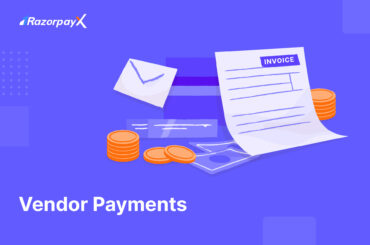Table of Contents
What is Lending?
Lending is the act of providing money or property to another person with the expectation that it will be returned with interest. Lending can be done between individuals, businesses, and governments. It is a vital part of the economy, as it allows businesses to grow and invest and consumers to purchase goods and services that they would not otherwise be able to afford.
What is a Lender?
A lender is a financial institution or individual that provides money to a borrower with the expectation that it will be repaid with interest. Lenders can be banks, credit unions, peer-to-peer lending platforms, or even individuals.
Lenders provide loans for a variety of purposes, including home purchases, car purchases, student loans, and business loans. They typically assess a borrower’s creditworthiness before approving a loan. This may include checking the borrower’s credit score, income, and debt-to-income ratio.
Lenders play an important role in the economy by providing businesses and consumers with the financing they need. They also help to create jobs and stimulate economic activity.
What are the Different Types of Lending?
There are many different types of lending, each with its own unique features and benefits. Some of the most common types of lending include:
- Commercial lending: Commercial lending is the type of lending that is provided to businesses. It can be used to finance a variety of business needs, such as working capital, equipment purchases, and expansion.
- Consumer lending: Consumer lending is the type of lending that is provided to individuals. It can be used to finance a variety of personal needs, such as home purchases, auto purchases, and student loans.
- Real estate lending: Real estate lending is the type of lending that is used to finance the purchase or construction of real estate. It can be used to finance both residential and commercial properties.
- Personal loans: Personal loans are a type of unsecured loan that can be used for a variety of purposes. They are typically used to finance smaller expenses, such as debt consolidation, medical bills, and home repairs.
- Credit cards: Credit cards are a type of revolving credit that allows borrowers to borrow money up to a certain limit. They are typically used to finance everyday purchases, such as groceries and gas.
Process of Lending
Application:
The borrower can apply for a loan in person, over the phone, or online. The application process will vary depending on the lender, but typically includes the following information:
- Personal information, such as name, address, and Social Security number
- Employment information, such as income and job title
- Debt information, such as outstanding loans and credit card balances
- Credit history, such as credit score and payment history
Underwriting:
Once the lender has received the borrower’s application, they will begin the underwriting process. This involves reviewing the borrower’s credit history to assess their creditworthiness. The lender will also consider the borrower’s income, debt, and employment history.
The lender will use this information to determine the borrower’s risk level. This will help the lender to decide whether to approve the loan and, if so, what interest rate and terms to offer.
Approval:
If the lender approves the loan, they will send the borrower a loan offer. This will include the loan amount, interest rate, and repayment terms. The borrower has the option to accept or decline the offer.
Closing:
Once the borrower has accepted the loan offer, they will need to sign the loan agreement. This agreement will outline the terms of the loan, including the interest rate, repayment terms, and any fees that may apply.
Once the loan agreement has been signed, the lender will disburse the loan funds to the borrower. The borrower will then begin making payments on the loan according to the terms of the agreement.
How to Choose a Lender
When choosing a lender, it is important to consider a number of factors, such as:
- Interest rates: Interest rates are the fees that borrowers pay to lenders in exchange for the use of their money. It is important to compare interest rates from different lenders before choosing a loan.
- Repayment terms: Repayment terms are the length of time that borrowers have to repay their loans. It is important to choose a loan with repayment terms that are affordable.
- Fees: Lenders typically charge a variety of fees, such as application fees, origination fees, and prepayment penalties. It is important to compare fees from different lenders before choosing a loan.
- Reputation: It is important to choose a lender with a good reputation. Borrowers can read online reviews and compare lender ratings to get an idea of a lender’s reputation.
Tips for Getting Approved for a Loan
There are a number of things that borrowers can do to increase their chances of getting approved for a loan, such as:
- Have a good credit score: Lenders use credit scores to assess a borrower’s creditworthiness. Borrowers with good credit scores are more likely to be approved for loans with lower interest rates and better terms.
- Have a steady income: Lenders want to see that borrowers have a steady income to repay their loans. Borrowers can provide lenders with documentation of their income, such as pay stubs or tax returns.
- Have a low debt-to-income ratio: Lenders use debt-to-income ratios to assess a borrower’s ability to repay their loans. Borrowers with low debt-to-income ratios are more likely to be approved for loans.
- Make a down payment: Lenders often require borrowers to make a down payment when they take out a loan. Down payments reduce the amount of money that borrowers have to borrow and make them less risky borrowers.
The Importance of Lending
Lending is an important part of the economy. It allows businesses to grow and invest, and consumers to purchase goods and services that they would not otherwise be able to afford. Lending also helps to stimulate the economy by creating jobs and increasing economic activity.
Here are some additional tips for borrowers:
- Shop around and compare offers from multiple lenders before choosing a loan.
- Read the fine print carefully and understand all of the terms of the loan before signing.
- Make sure that you can afford the monthly payments.
- Set up a budget and stick to it to ensure that you can repay the loan on time.
- If you have any trouble making your payments, contact your lender immediately.
Lenders play an important role in the economy by providing businesses and consumers with the financing they need.
FAQs
What is the difference between a secured and unsecured loan?
A secured loan is a loan that is backed by collateral, such as a house or a car. If the borrower defaults on the loan, the lender can seize the collateral to recoup their losses. An unsecured loan is a loan that is not backed by collateral. If the borrower defaults on the loan, the lender has fewer options for recouping their losses.
What is a credit score and how does it affect my ability to get a loan?
A credit score is a three-digit number that is used by lenders to assess a borrower's creditworthiness. Credit scores are based on a borrower's credit history, which includes information such as their payment history, credit utilization, and length of credit history. Borrowers with good credit scores are more likely to be approved for loans with lower interest rates and better terms.
What are some common fees associated with loans?
Some common fees associated with loans include: Application fees: Application fees are charged by lenders to cover the cost of processing a loan application. Origination fees: Origination fees are charged by lenders to cover the cost of underwriting and closing a loan. Prepayment penalties: Prepayment penalties are charged by lenders if a borrower repays their loan early. Late payment fees: Late payment fees are charged by lenders if a borrower makes a late payment on their loan.
What should I do if I am struggling to make my loan payments?
If you are struggling to make your loan payments, you should contact your lender immediately. Lenders may be able to offer you a variety of options, such as a loan modification or a forbearance agreement. It is important to note that lenders are not required to work with borrowers who are struggling to make their payments. However, many lenders are willing to work with borrowers to avoid foreclosure or repossession.





